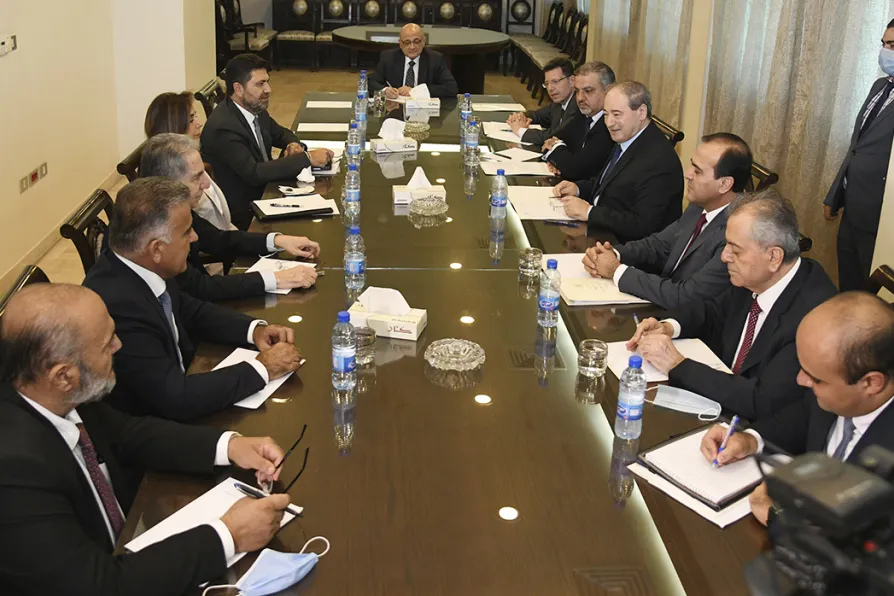US siege of Lebanon breaks as oil shipment from Iran arrives in Syria

 Syria's Foreign Minister Faisal Mekdad, third right, meets with Lebanese Energy Minister Raymond Ghajar, left, caretaker Defense Minister and acting Foreign Minister Zeina Akar, second left, Lebanon's Finance Minister Ghazi Wazni, third right, and Lebanon's top negotiator and security chief Abbas Ibrahim in Damascus, Syria
Syria's Foreign Minister Faisal Mekdad, third right, meets with Lebanese Energy Minister Raymond Ghajar, left, caretaker Defense Minister and acting Foreign Minister Zeina Akar, second left, Lebanon's Finance Minister Ghazi Wazni, third right, and Lebanon's top negotiator and security chief Abbas Ibrahim in Damascus, Syria
WASHINGTON’S financial, economic and political siege of Lebanon has started to crumble, according to parliamentarian Hassan Fadlallah, as oil shipments from Iran arrive in Syria.
The Hezbollah MP said on Saturday that the US had “failed in its bid to impose its will on Lebanon,” which, as a country, is facing the world’s worst financial crisis since the mid-19th century, according to the World Bank.
Fuel shortages have resulted in blackouts across the country; hospitals warned last month that hundreds of patients would die if they were unable to power their generators.
More from this author


















